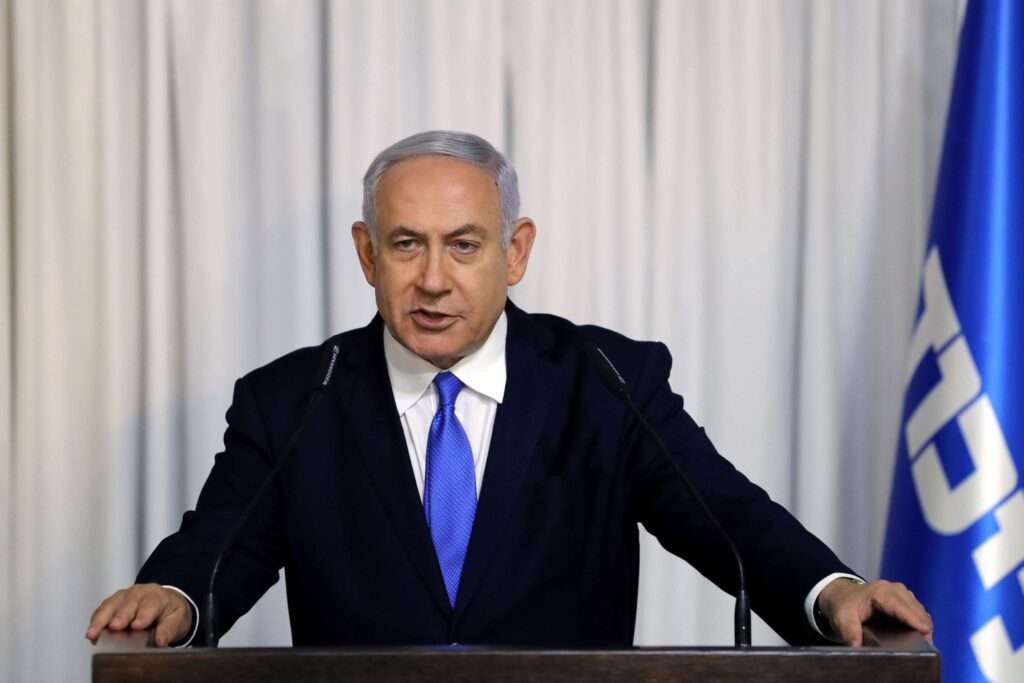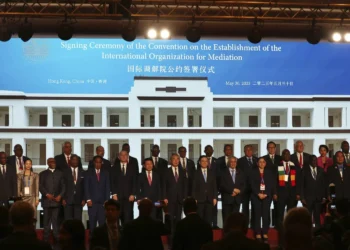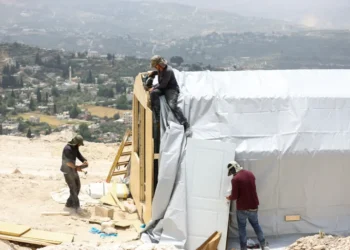Israel’s defense minister has ordered ground forces to push deeper into the Gaza Strip, escalating military operations in a bid to pressure Hamas into releasing the remaining hostages. The intensified offensive follows Israel’s recent seizure of the key Netzarim corridor, a strategic route dividing Gaza’s north from its south.
Israeli troops have since advanced towards the northern town of Beit Lahiya and the southern border city of Rafah. The military confirmed it has reinstated a blockade on northern Gaza, including Gaza City, to restrict movement and supplies.
Meanwhile, a political power struggle is unfolding in Israel. Prime Minister Benjamin Netanyahu’s attempt to dismiss Ronen Bar, the head of Shin Bet, has hit a legal roadblock.
Despite Netanyahu’s Cabinet unanimously approving the decision, Israel’s Supreme Court temporarily halted the dismissal until an appeal is heard, no later than April 8. The prime minister’s office had planned for the firing to take effect by April 10, or earlier if a replacement was appointed.

Israel’s attorney general has ruled that the government lacks the legal authority to remove Bar. This dispute has intensified political tensions, with critics accusing Netanyahu of overreach in an attempt to consolidate power. The move has sparked widespread protests, with tens of thousands of Israelis demonstrating in support of Bar, including outside the prime minister’s residence.
Hamas responded to the leadership crisis by stating that Netanyahu’s decision to fire the Shin Bet chief exposes a “deepening crisis of distrust” within the Israeli government. The group accused Netanyahu of “engineering sham negotiations to stall and buy time without any genuine intention of reaching tangible outcomes.”
However, Defense Minister Israel Katz reinforced Israel’s stance on Friday, stating that military operations would intensify until Hamas releases the remaining hostages. “The more Hamas continues its refusal to release the kidnapped, the more territory it will lose to Israel,” Katz declared.
The war in Gaza was reignited after Israel ended a fragile ceasefire that had facilitated the release of over two dozen hostages. Since Tuesday, nearly 600 Palestinians have been killed as Israel escalated its strikes following Hamas’ rejection of a new ceasefire proposal.
Israel had previously cut off food, fuel, and humanitarian aid to Gaza’s 2 million residents, asserting that military pressure would continue until Hamas surrenders the remaining 59 hostages, 24 of whom are believed to be alive.
The earlier truce, agreed upon in mid-January, was structured as a three-phase plan aiming for a long-term ceasefire, full Israeli withdrawal, and the return of all hostages. During its first phase, Hamas released 25 hostages, along with the remains of eight others, in exchange for Israel freeing nearly 1,800 Palestinian prisoners. Israeli forces also retreated to buffer zones inside Gaza, allowing hundreds of thousands of displaced Palestinians to return to the north.
However, the ceasefire collapsed as Netanyahu resisted engaging in substantive negotiations, instead backing a new ceasefire proposal by U.S. Middle East envoy Steve Witkoff. This proposal sought Hamas’ agreement to release half of its remaining hostages in return for a temporary ceasefire extension, with the possibility of further talks for a lasting truce. Unlike the initial agreement, this proposal did not offer the release of additional Palestinian prisoners—a major demand from Hamas.
Hamas rejected the revised plan, insisting on a permanent ceasefire and complete Israeli withdrawal before considering any further hostage exchanges. The militant group stated it would be willing to hand over power to the Western-backed Palestinian Authority or a committee of independents but maintained its stance on retaining its arms until Israel ceases its occupation of Palestinian territories.
Political Fallout and Leadership Crisis
Beyond the battlefield, Netanyahu faces mounting internal pressures. The fallout from Hamas’ October 7, 2023, attack that triggered the war continues to reverberate within Israel’s leadership. A Shin Bet report on the attack admitted failures within the security agency but also pointed to Netanyahu’s policies as contributing factors.
Adding to the turmoil, Shin Bet has launched an investigation into alleged ties between Netanyahu’s close aides and Qatar, further straining political tensions. Many view Bar’s dismissal as an attempt by Netanyahu to suppress scrutiny and consolidate power, rather than an effort to improve national security.
As tensions continue to rise, both militarily and politically, Israel’s leadership faces mounting scrutiny both domestically and internationally. The escalating conflict in Gaza and the ongoing power struggle within Netanyahu’s government could have far-reaching consequences for the region’s stability.
READ ALSO: Bishop Obinim Regrets Not Suing Kennedy After Anas’ Defamation Award







